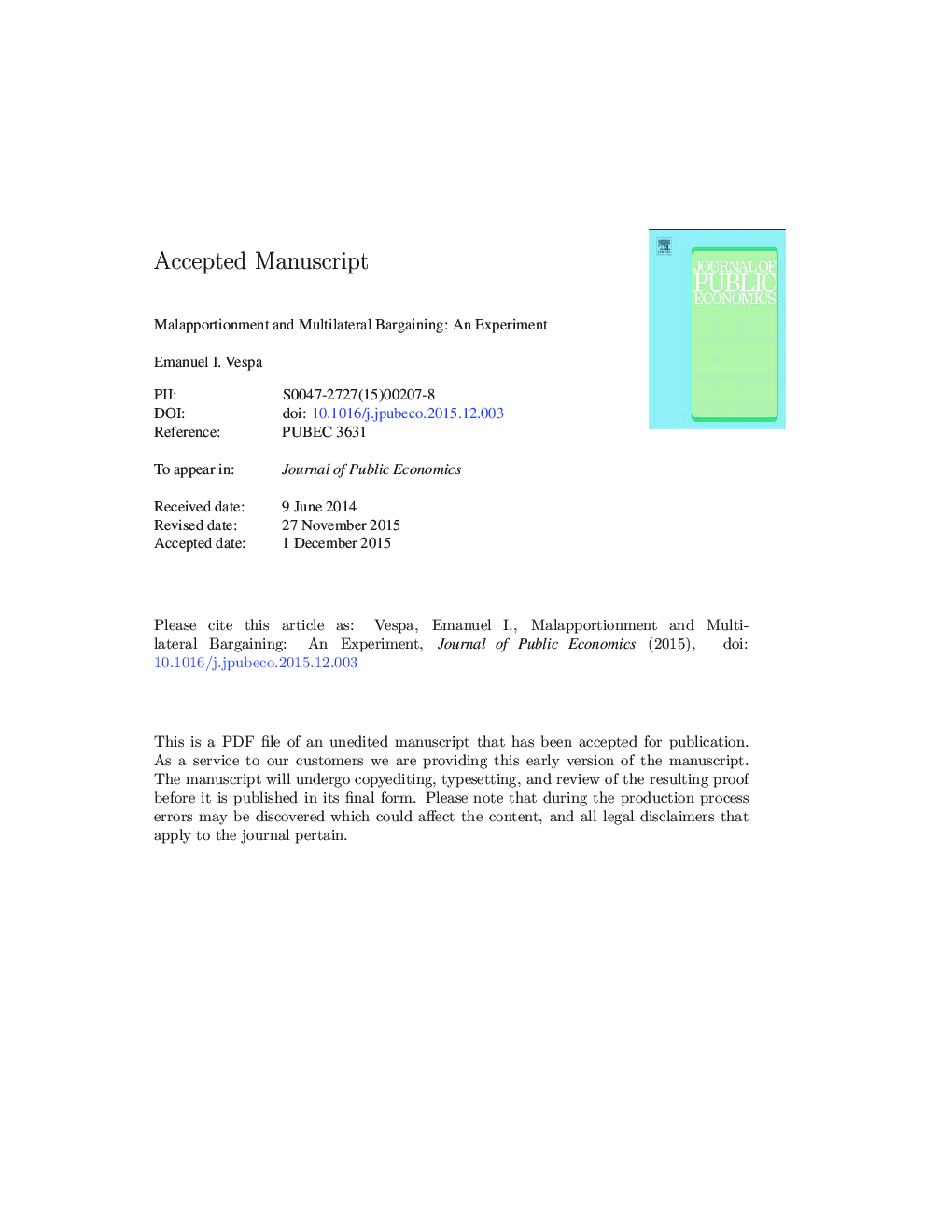| Article ID | Journal | Published Year | Pages | File Type |
|---|---|---|---|---|
| 7369779 | Journal of Public Economics | 2016 | 30 Pages |
Abstract
Members of collective decision-making bodies often represent communities that differ in population sizes. Malapportionment results when decision-making power is not allocated evenly across the population. Two well known institutions with malapportionment have emerged: bicameralism and weighted voting. This paper studies experimentally how agenda setting power affects the distribution of resources, comparing across those two institutions. Conventional wisdom suggests that malapportionment favors scarcely populated states. I find that this is the case under weighted voting, but not necessarily in a bicameral system. In the later case, the allocation of agenda setting power can be used to eliminate distortions stemming from malapportionment.
Related Topics
Social Sciences and Humanities
Economics, Econometrics and Finance
Economics and Econometrics
Authors
Emanuel I. Vespa,
